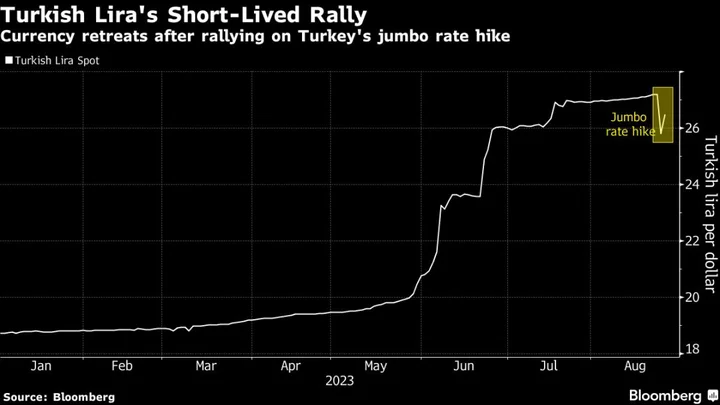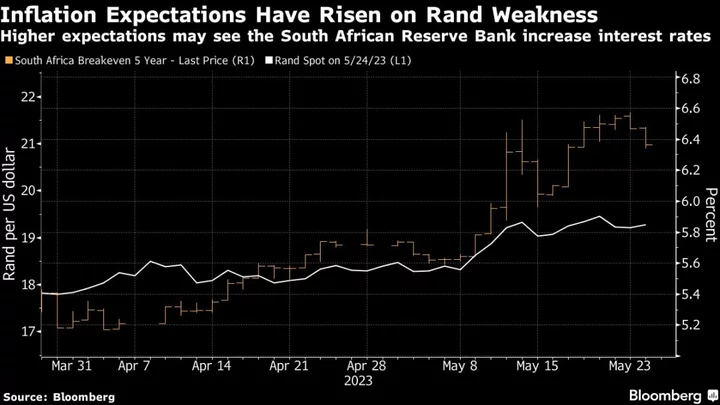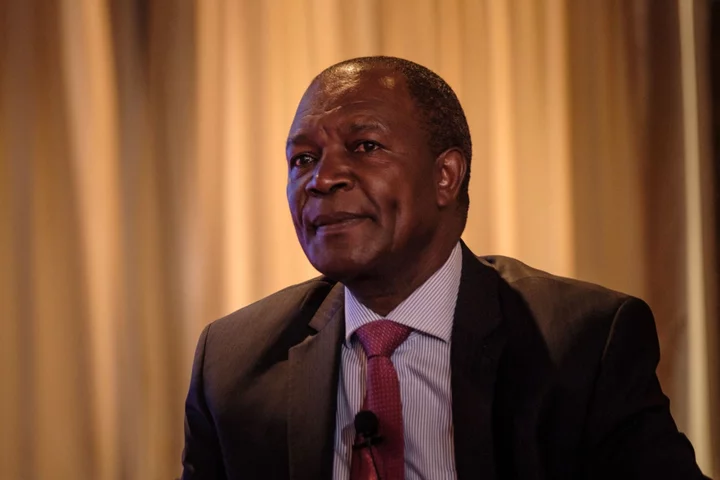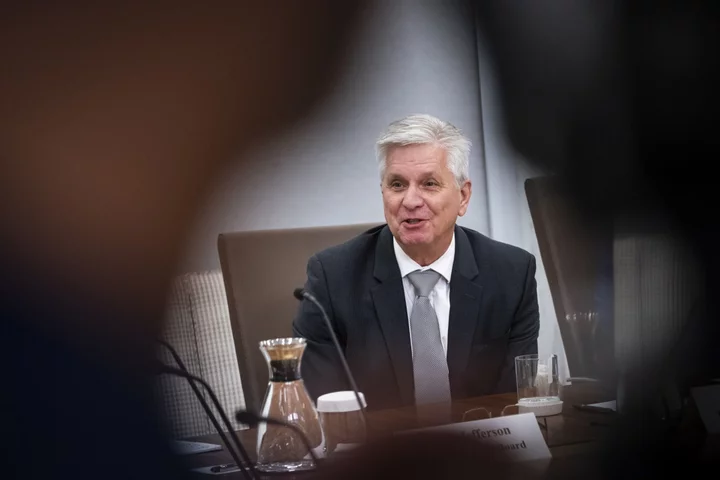Turkey’s lira slumped as the euphoria surrounding Thursday’s jumbo interest-rate hike subsides, with questions arising over whether the aggressive move has the blessing of President Recep Tayyip Erdogan.
The lira lost as much as 2.8% against the US dollar on Friday, the worst performance across developing markets which erased about half of the currency’s gains from Thursday. Weaker global sentiment amid uncertainty over US interest rates also pushed emerging-market currencies into the red for the first time in four days.
MSCI’s index of emerging market currencies slipped 0.2% after Federal Reserve Chair Jerome Powell delivered remarks at the Jackson Hole symposium in Wyoming on Friday. Powell signaled it’s still too soon to declare victory over inflation, while saying the Fed “will proceed carefully” on whether to raise interest rates again.
Alejandro Cuadrado, Global Head of FX & Latam Strategy at BBVA, said the remarks reinforced “overall risk sentiment shakiness.”
Concerns over China’s sputtering economy also continued to weigh on emerging-market sentiment. A short-lived rally in Chinese stocks after Beijing’s latest attempt to shore up growth underscored the depth of investor pessimism toward the world’s second-largest economy.
Defying the market pessimism, South Africa’s rand outperformed peers, heading for its first weekly gain in four. Expectations for investment flows are following a summit of the BRICS bloc — Brazil, Russia, India, China and South Africa — this week in Johannesburg.
Fading Rally
Turkish assets had rallied on Thursday after the Monetary Policy Committee, with newly appointed members led by Governor Hafize Gaye Erkan, surprised investors with an increase in the benchmark one-week repo rate of 7.5 percentage points to 25%.
The buying-spree proved short lived though, with investors bracing for the risk of more political meddling in monetary policy. Erdogan has chased out three central bank governors since 2019, spurring an exodus of capital that has weighed heavily on the lira.
“If in the coming days President Erdogan comments on the latest stunning decision and he strongly indicates that Governor Erkan and her team have his full support, the lira may become one of the most popular EM currencies,” said Piotr Matys, a currency analyst at InTouch Capital Markets. “At least until the Turkish president decides to reshuffle the Turkish central bank once again.”
Heavy corporate demand for dollars helped to drive the lira lower on Friday, according to traders familiar with the matter, who asked not to be identified because they weren’t authorized to speak publicly.
Read More: Turkey’s Mega Hike Has Analysts Cheering, Asking for More
Companies are concerned that the currency’s rally will fade and see the current level as a dollar-buying opportunity, they said. Turkish firms with large foreign-currency positions tend to buy hard currencies when the lira rises. According to the latest central bank data, the net open FX position of non-financial companies stood at $81.5 billion in May.
The lira traded at 26.54 against the dollar, down 2.8% on the day as of 11:50 a.m. in New York.
Tatha Ghose, an analyst at Commerzbank AG, said the massive rate hike isn’t enough to make him a lira bull, as the central bank will need to raise interest rates further. With inflation running near 50%, Turkey’s real rate is at minus 22.8%, among the lowest in the world.
The central bank’s “rate hike was commendable, but it has delivered us to a point where we have to watch out for reactions from Erdogan,” Ghose said in a report. “This will even more be an issue if inflation” doesn’t start falling “soon,” he wrote.
--With assistance from Kerim Karakaya, Tugce Ozsoy and Vinícius Andrade.
(Updates prices and adds Powell, analyst comments after paragraph two.)









